Is honey good for your hair? For centuries, this naturally golden substance has been valued not just for its sweetness but also for its medicinal and cosmetic benefits. Indigenous cultures around the world have used honey to treat wounds thanks to its rich nutrient content and antioxidant properties. Its natural antibacterial qualities are gaining attention in modern medical applications.
Beyond its health applications, honey is a favored ingredient in beauty and hair care products. Byproducts from the beehive, such as propolis and royal jelly, are also celebrated for their cosmetic advantages. Discover the ways in which honey can enhance your hair’s health and learn some top methods for incorporating it into your hair care regimen.
Is Honey Good for Your Hair?
Honey is highly beneficial for hair care, thanks to its hydrating, strengthening, antibacterial, and anti-inflammatory properties.
It not only moisturizes and fortifies strands but also enhances shine and soothes the scalp. This natural ingredient is a powerhouse for maintaining healthy hair.
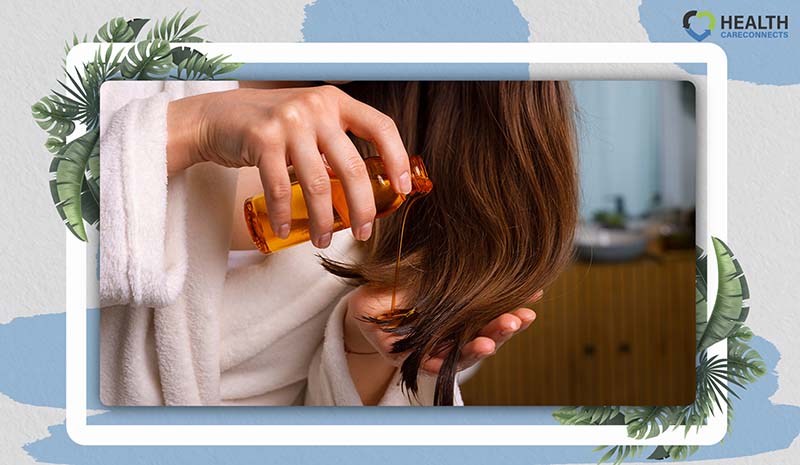
5 Benefits of Honey for Hair
The secret to shiny, healthy hair might just be in your kitchen. Here’s a deeper look at the amazing benefits this antioxidant-rich ingredient can offer for your hair:
Honey Moisturizes Dry Hair
Honey has emollient and humectant properties that add moisture to hair follicles.
This naturally smooths the hair shaft, restoring shine and luster to frizzy, dry, curly, or dull hair. Its humectant properties also seal in moisture to prevent future dryness.
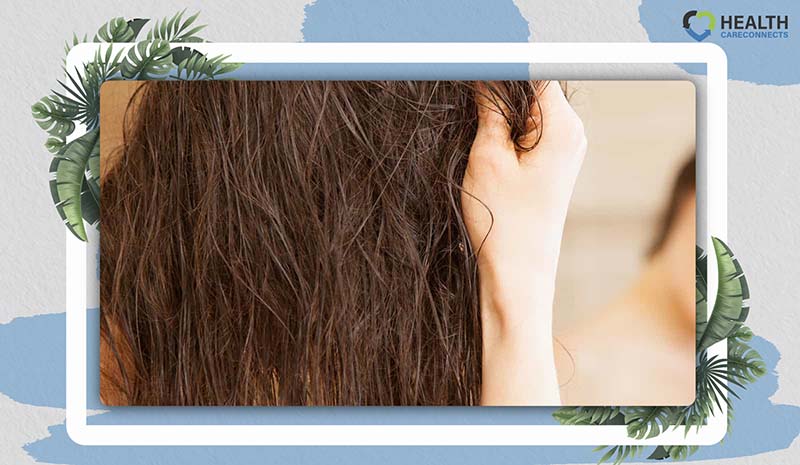
Honey Prevents Hair Breakage and Shedding
Honey is loaded with vital nutrients for hair health, including trace amounts of keratin, a protein that adds structure and strength to hair.
Combined with its antioxidant properties and moisturizing effects, honey helps combat hair fall and breakage.
Honey Possesses Natural Hair-lightening Properties
Honey contains an enzyme called glucose oxidase and a natural sugar called glucose. When the enzyme breaks down glucose, it produces hydrogen peroxide, which can lighten hair by breaking down melanin.
While honey won’t bleach hair like chemical treatments, leaving honey on your hair for a while can enhance your natural highlights without the damage associated with harsh chemicals.
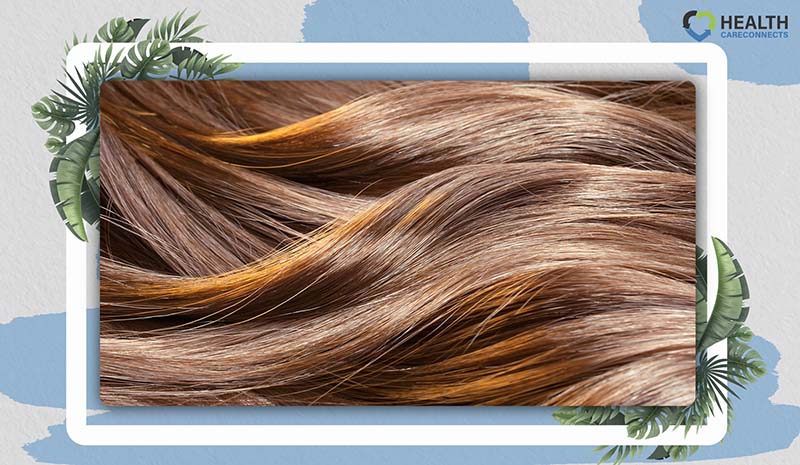
Honey Reduces Dandruff in Oily Scalps
Honey helps remove buildup that can clog hair follicles and lead to conditions like dermatitis. Its anti-inflammatory properties may improve conditions such as eczema and psoriasis.
Since dandruff is often caused by fungus or bacteria, honey’s antibacterial properties make it ideal for relieving dandruff, chronic seborrheic dermatitis, and inflamed scalp conditions.
Honey Promotes Hair Growth
Honey is known for promoting wound healing and preventing infection. Studies show that it can promote the growth of epithelial skin cells, which make up hair follicles and ducts. This helps maintain healthy hair growth.
Honey can even strengthen or wake up dormant hair follicles, encouraging new hair growth. Its nutrients boost hair strength and structure, reducing breakage and helping hair grow longer over time.
Utilizing Honey for Hair Care
Here are some of the best ways to use honey to maximize the benefits for your hair:
- Honey Hair Mask: Combine two tablespoons of honey with one tablespoon of coconut oil or olive oil. Apply this mixture to damp hair, particularly focusing on the ends. Allow it to sit for 30 minutes before rinsing thoroughly. This deep-conditioning mask will hydrate and nourish your hair, leaving it silky and smooth.
- Honey and Yogurt Treatment: Mix two tablespoons of honey with four tablespoons of plain yogurt. Apply this blend to clean, damp hair, covering from roots to ends. Let it sit for 20-30 minutes, then rinse well. This treatment is excellent for moisturizing your hair and improving scalp health.
- Honey Rinse: Dissolve one tablespoon of honey in a cup of warm water. After shampooing and conditioning, pour this honey rinse over your hair, gently massaging it into the scalp. Allow it to sit for a few minutes before rinsing it out. This rinse will enhance your hair’s shine and provide additional nourishment.
- Honey and Aloe Vera Gel Mask: Mix two tablespoons of honey with two tablespoons of aloe vera gel. Apply this mixture to clean, damp hair and leave it on for 30 minutes. Rinse thoroughly afterwards. This mask will help make your hair softer and more manageable.
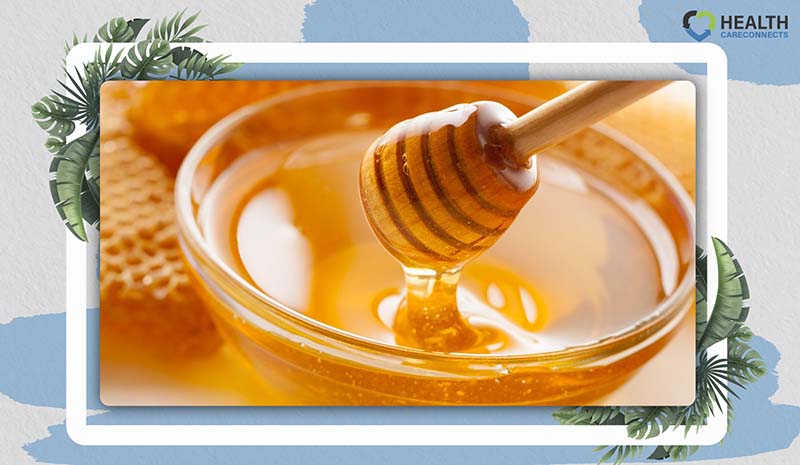
For Which Hair Types Is Honey Beneficial?
All hair types and textures can benefit from honey! It adds moisture and shine while reducing frizz by smoothing the hair follicles. However, certain hair types and textures may benefit even more than others.
For example, honey’s antibacterial and anti-inflammatory properties are great for those with a dry, inflamed, or itchy scalp and conditions like dandruff. Additionally, those with extremely dry, brittle, damaged, or curly hair will especially benefit from honey’s humectant properties and regenerative proteins.
Who Should Use Honey on Hair?
While anyone can use honey on their hair, including those with color-treated hair, people with dry hair may find honey particularly helpful.
Honey can improve shine and soften the hair, making it especially beneficial for those with dry or damaged hair.
Frequency of Honey Use for Hair
Honey can be used daily as an ingredient in shampoo, conditioner, or hair oil.
For a more intensive treatment, you can apply a honey hair mask once or twice a week, allowing it to sit on your hair for 10-15 minutes.
Honey pairs well with coconut oil, olive oil, jojoba oil, and other carrier oils traditionally used to add moisture to the hair.
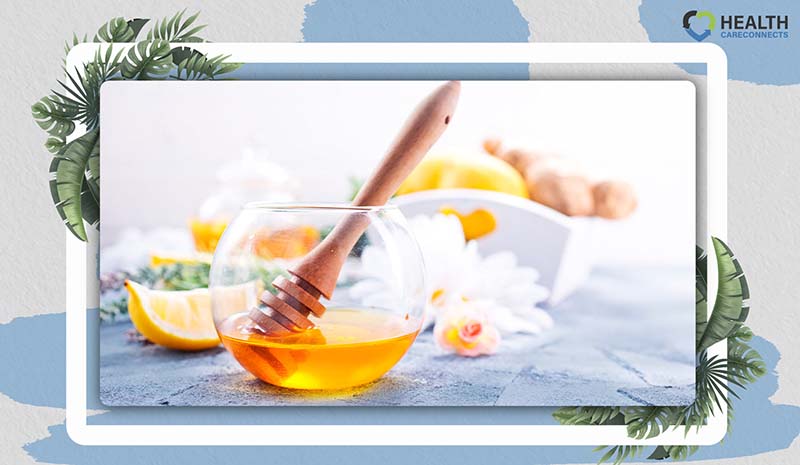
Is Honey Good for Curly Hair?
Honey is indeed beneficial for curly hair. It offers various advantages such as moisture retention, shine enhancement, and hair strength. Honey acts as a humectant, drawing moisture into the hair follicles, and as an emollient, coating hair follicles to seal in moisture.
Additionally, honey contains antioxidants that can stimulate hair growth and improve blood circulation, contributing to healthier curls. Its antibacterial properties can protect the scalp from infections and conditions like dandruff.
Honey is suitable for all hair types but is particularly nourishing for dry hair types like curls and coils, as it provides hydration without weighing down the hair.
Conclusion
Honey has long been celebrated by cultures around the world for its remarkable medicinal properties. Packed with vitamins, minerals, and antioxidants, and known for its anti-inflammatory capabilities, honey is beneficial for a variety of purposes—from wound healing to soothing sore throats.
Given its wealth of nutrients, it’s no surprise that honey also offers substantial benefits for hair and scalp health. Is honey good for your hair? Absolutely—it’s an excellent way to nourish and enhance the vitality of both your hair and scalp.
For those seeking more information and honest product reviews, I recommend visiting HealthCareConnect.

Dr. Joyce Slater: Your Guide to Informed Health Choices
Dr. Joyce Slater shines as a distinguished expert in the field of nutrition and public health. Contributing her vast expertise to HealthConnectbc, she embodies a deep-seated passion for enhancing public well-being. As a respected figure in her field. Dr. Slater’s academic journey and professional achievements are nothing short of inspirational.
Holding a significant position as a researcher and educator, Dr. Slater has delved deeply into the intricacies of food literacy and nutritional science. Her work, prominently featured in numerous esteemed scientific publications, underscores her dedication to expanding our understanding of food’s role in health and society.
At the heart of Dr. Slater’s professional ethos is a profound desire to positively impact individual lives through education and research. She often says, “Empowering people with the knowledge to make healthier choices is the most rewarding aspect of my work.” This principle is the cornerstone of her involvement with HealthConnectbc, where she strives to provide reliable and practical health advice.
Dr. Slater’s contributions to HealthConnectbc are multifaceted: academically, she offers insights into the complex world of nutrition and health, enhancing both public understanding and professional practices. Additionally, she is instrumental in guiding and inspiring the next generation of health professionals, thus fostering future excellence in the field.
Juggling rigorous research with her educational duties, Dr. Slater demonstrates an unwavering commitment to her profession. Her approachable nature and genuine concern transcend the confines of academia, touching the lives of everyone she interacts with. Dr. Slater looks forward to continuing her journey of discovery and education, dedicated to the ongoing improvement of public health and nutrition.
At HealthConnectbc, Dr. J. Slater is not just a contributor; she is a guiding light, dedicated to enlightening and motivating individuals towards a healthier and more informed lifestyle.
PUBLISHED ARTICLES
- Food literacy competencies: A conceptual framework for youth transitioning to adulthood (2018)
- Self-perceived eating habits and food skills of Canadians (2016)
- Challenges to acquiring and utilizing food literacy: Perceptions of young Canadian adults (2016)
- Socio-demographic and geographic analysis of overweight and obesity in Canadian adults (2009)
- Sustainable well-being: Concepts, issues, and educational practices (2014)

